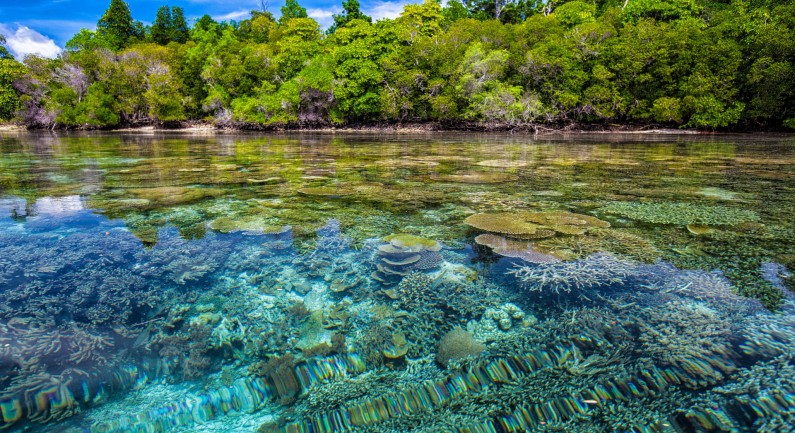
Coral reefs protect the environment, the coasts, and the economy. They prevent flooding that would cost billions of dollars.
The reefs act as a buffer, protecting the coastlines from being eroded by the crashing waves. When coral reefs are healthy, they continuously grow, and repair damage caused by the waves. Unhealthy coral cannot grow as fast and leaves previously protected coastlines exposed to erosion by the waves.
When people think about saving endangered species for the ecosystem, they should also think about the benefits to themselves. Every species plays a role in the ecosystems, and they offer value to human life either directly or indirectly. This is what is called environmental services.
Coral reefs help to maintain the richest and most biodiverse ecosystems. They also prevent flooding and coastal erosion by acting as natural dikes. However, the world is losing some of these services.
Dr. Michael W. Beck, the lead marine scientist for the Nature Conservancy and Research Professor at UC Santa Cruz states, the world is losing the “height and complexity of shallow reefs.” This is causing an increase in flood damage along tropical coastlines. The national economies are valued by how much people take from nature. For the first time, people can value what every economy gains in flood savings by conserving the coral reef annually.
Beck and his colleagues used flooding models to estimate the contribution of the coral reefs. Flooding scenarios with and without coral were considered for four storm events. The events were based on the likeliness of occurrence. They calculated the damage the flooding would create with and without the coral reefs.
Without the corals, the damage from flooding would be double and increase costs by $4 billion a year. Frequent storms would triple the costs. Flooding coupled with a rise in sea level could quadruple costs. The storm that occurs once-in-a-hundred-years would cost 91 percent more in flood damage. In the United States, this storm could cost $272 billion.
Researchers determined that coral reefs provide a large amount of environmental services, and without them, the world would suffer environmental and economic damage.
Countries would not suffer equally. Indonesia, Mexico, the Philippines, Cuba, and Malaysia would benefit the most from reef conservation and restoration. The U.S. ranks eighth globally of countries that need coral reef to be preserved.
Dr. Borja Reguero, a research scientist at UC Santa Cruz said: “These estimates make a compelling case for present-day spending of reef management without assuming that reefs will disappear altogether under a business as usual scenario – nor do the rely on just rare, large storms. Better valuations of the benefits provided by coastal habitats like coral reefs, provided in terms familiar to decision makers, can help decision makers recognize the value and ensure the protection of the critical habitats and their services.”
By Jeanette Smith
Sources:
ZME Science: Coral reefs protect our coasts — and our wallets
Stanford Microdocs: How reefs protect the land
Image Courtesy of kanenori’s Pixabay Page – Creative Commons License


